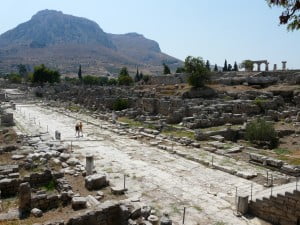 I am in the process of writing a Grove Biblical booklet with the title ‘Women and authority: key biblical texts’ which aims to explore all the key texts in 28 pages! Due out later this month. I am aiming to cover Gen 1, 2 and 3, Luke 24, John 20,Acts 18, Romans 16, 1 Cor 11, 1 Cor 14, Eph 5 and 1 Tim 2.
I am in the process of writing a Grove Biblical booklet with the title ‘Women and authority: key biblical texts’ which aims to explore all the key texts in 28 pages! Due out later this month. I am aiming to cover Gen 1, 2 and 3, Luke 24, John 20,Acts 18, Romans 16, 1 Cor 11, 1 Cor 14, Eph 5 and 1 Tim 2.
This is the introduction to the section on 1 Tim 2. Although it is general, even these observations significantly affect how we read this important text. (And do you like the picture?!)
This text often sits at the centre of the debate on what the New Testament (and in particular Paul) says about how men and women relate in ministry. At times it has been treated as a litmus test for orthodoxy in some circles, but in fact almost every aspect of the passage has been disputed, and the history of interpretation has been more varied than is often acknowledged. So, despite being a short passage, it needs a section to itself.
































